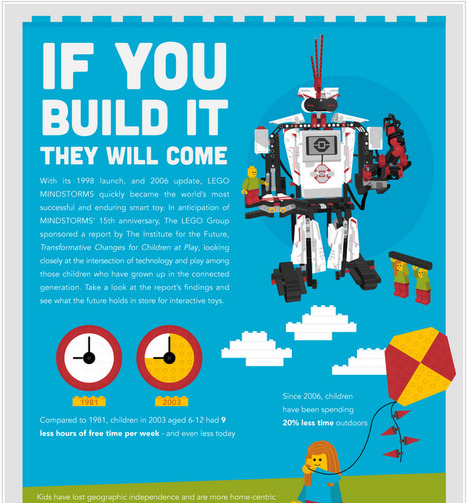"If kids can access information from sources other than school, and if school is no longer the only place where information lives, what, then happens to the role of this institution?"
Research and publish the best content.
Get Started for FREE
Sign up with Facebook Sign up with X
I don't have a Facebook or a X account
Already have an account: Login
Tech tools that assist all students to be independent learners & teachers to become better teachers
Curated by
Beth Dichter
 Your new post is loading... Your new post is loading...
 Your new post is loading... Your new post is loading...

Traci Selby's curator insight,
March 24, 2013 9:48 AM
What child does not like legos or some type of building blocks? Recently there was a discussion on linked-in about this very subject and it has gotten a lot of responses. In my opinion PLAY is a necessity to child's development.....and if you haven't gotten to play with a child lately, take the time you will learn from them too! |
|













Inquiry: the best teachers show you where to look, don't tell you what to see. Inquiry learning helps students across all curriculum areas.
A few things about this article stand out, firstly that inquiry is fostered through scaffolding, secondly, that teachers teach kids - not subjects and finally that opportunities are provided for experiential learning. Scaffolding learning enhances the learning experience for all students, as the amount of scaffolding required can be differentiated. When teachers let go of their need to teach subjects, or impart knowledge they are free to facilitate a learning process. There is a great body of research to suggest that students learn best through a hands-on experiential approach. Providing these opportunities throughout the day challenges teachers to forsake the commonplace and allow for richer, less contrived learning spaces.